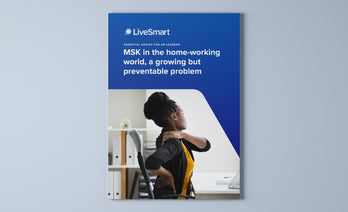In the UK, 5 year survival rates for bowel cancer are currently around 60%. This is consistently and significantly lower than almost all other high income countries, including the US (64.9%), Australia (70.7%), France (63.7%) and Japan (66.8%).
Although outcomes are improving with time, the UK continues to lag behind and it’s important to understand some of the reasons why, in order to identify and provide potential solutions. Reasons are varied, but key themes are certainly the approaches to prevention and diagnosis in the UK compared to elsewhere.
Bowel cancer screening: What’s happening right now?
Although bowel cancer is one of the three cancers that we have a national screening programme for (the others being breast and cervical cancers) there are discrepancies between the age at which this is offered to the population which could influence survival rates.
In England, all adults aged 60 to 74 are invited to take part in screening for bowel cancer every two years, and are posted a self-collection stool sample kit. In many ways, England’s screening programme is a success story, with uptake increasing from just 35% in 2009/10 to 61% in 2018/19. Cancer Research UK now estimate that bowel screening could save around 2,000 lives per year in the UK by 2025, reducing mortality (death) from bowel cancer by 12-17%.
However, 15 out of 21 countries with a national screening programme begin screening earlier, often from the age of 50. It stands to reason that this more cautious approach will result in more cancers detected, and earlier. This is because survival rates for bowel cancer (much like any sort of cancer) are much higher for cancers caught early. Indeed, recent 3 year survival stats for bowel cancer show that survival is higher among people diagnosed via screening than those diagnosed via any other route.
Cancers are staged between 1 to 4, which refers to how advanced they are at the time of diagnosis. Sadly, over half of bowel cancers are diagnosed at stage 3 or 4, meaning they are more advanced, more difficult to treat, and have a worse prognosis for survival. This split is even more pronounced when we look at bowel cancers in younger people, with 61% of under 60s diagnosed at one of these later stages.
The bottom line: Screening is an effective way of saving lives from bowel cancer. If the UK were to begin screening from the age of 50, how many more lives could be saved as a result?
Prevention is better than cure?
54% of bowel cancers are thought to be preventable. A huge 41% could be prevented by eating a healthier diet - eating enough fibre rich foods and limiting red and processed meat - and 11% are thought to be directly linked to being overweight or obese. However, in the UK, government spending on public health education and prevention is limited. In fact, spending on Public Health initiatives has fallen by £72.5million per year between 2018/19 and 2019/20.
When this is combined with the impact of the Covid-19 pandemic, huge numbers of people could be missing out on primary treatment and prevention, as well as investigation and diagnosis. Data from March 2020 to June 2020 showed around a 30% reduction in people attending routine GP appointments, and a 50% reduction in routine referrals to hospital. Worryingly, there was also a 43% reduction in 2-week wait referrals - the pathway used by GPs to ensure patients with suspected cancer symptoms are seen quickly. All this contributes to a huge reduction in the opportunities health care professionals have to provide life saving preventative health messages, as well as treatment.
Although many people may be aware of common public health messages, data from our database show that 56% of our customers don’t reach the minimum 5 servings of fruit and vegetables daily, and 61% include less than 3 meals per week featuring pulses and legumes, meaning their fibre intake could be limited. 20% are eating too much red and processed meat. However, following the provision of evidence based health education, these statistics improve significantly at repeat health assessments. This includes an additional 20% of people reaching the 5 a day target, an extra 13% reaching 3 or more servings of pulses and legumes, and the numbers of people eating too much red meat dropping to just 12%.
The bottom line: Prevention is better than cure, but we need to provide better access to education and behaviour change interventions to support individuals to understand their risks and take action. We need more innovative solutions to providing access to evidence based information in a way that is meaningful to individuals, and empowers them to make positive lifestyle changes.
So, what can we do?
We’ve seen there is a powerful argument for widening access to screening services. Whilst the NHS may be limited in its budget, companies have the power to provide greater access to these screening tests to their staff at a relatively low cost per person. Meanwhile the potential benefits to the individual is huge given the differences in survival rates for cancers caught early. LiveSmart can provide FIT testing to eligible employees as part of our comprehensive health assessments.
At LiveSmart we also understand the power of prevention, but before that, the power of education and insight into one’s health. LiveSmart is built on the principles of empowering individuals to understand and take control of their health. We provide comprehensive, digital health screening services which can reach your employees wherever they are.
Since the start of lockdown alone, LiveSmart have provided fully remote, digital health assessments to over 1,750 individuals and carried out over 675 coaching calls, providing detailed, personalised information and support.

 Bowel cancer survival is worse in the UK compared to other countries - can we change this?
Bowel cancer survival is worse in the UK compared to other countries - can we change this?

